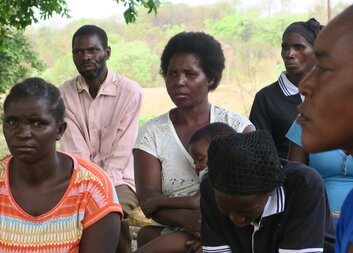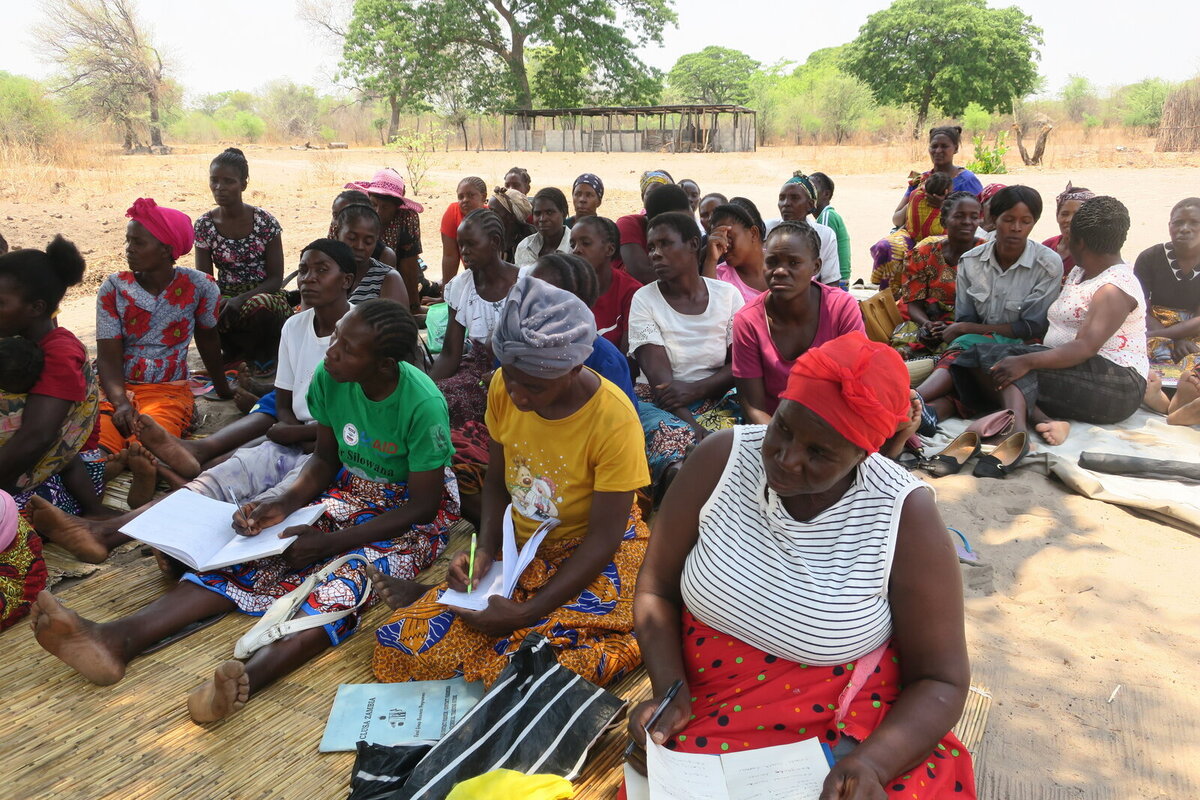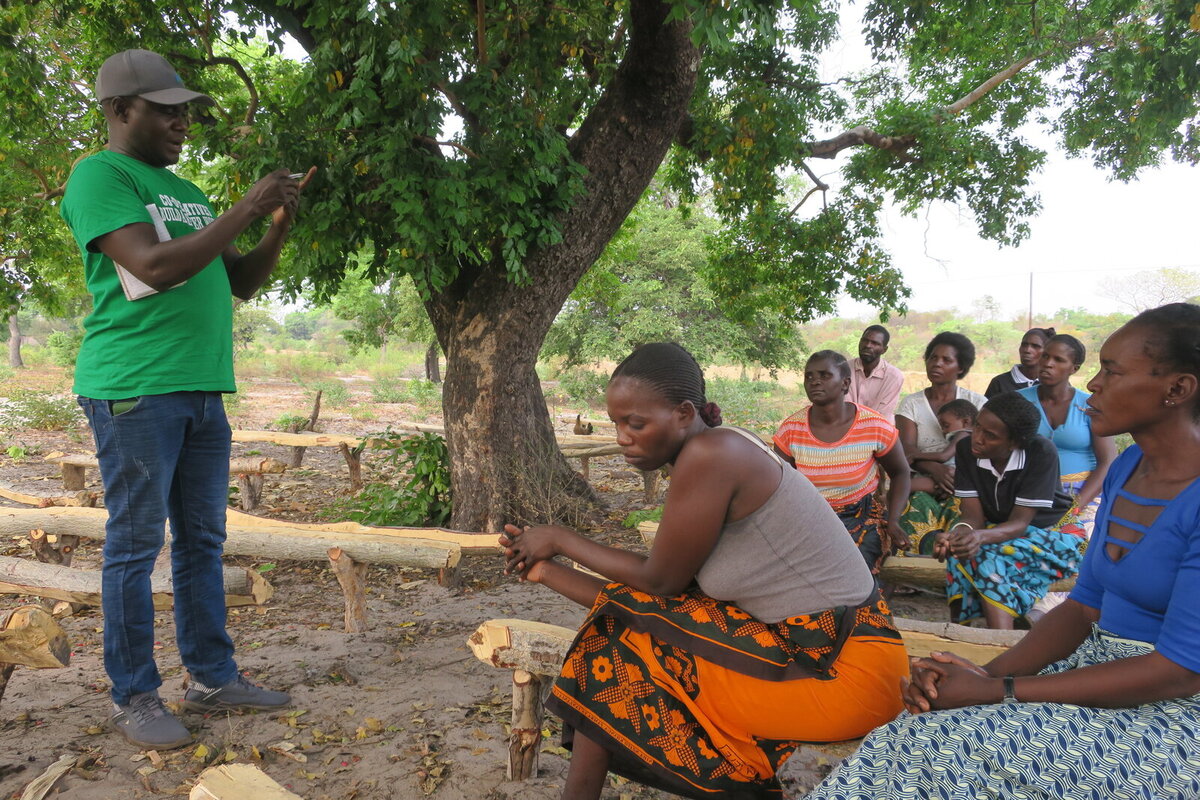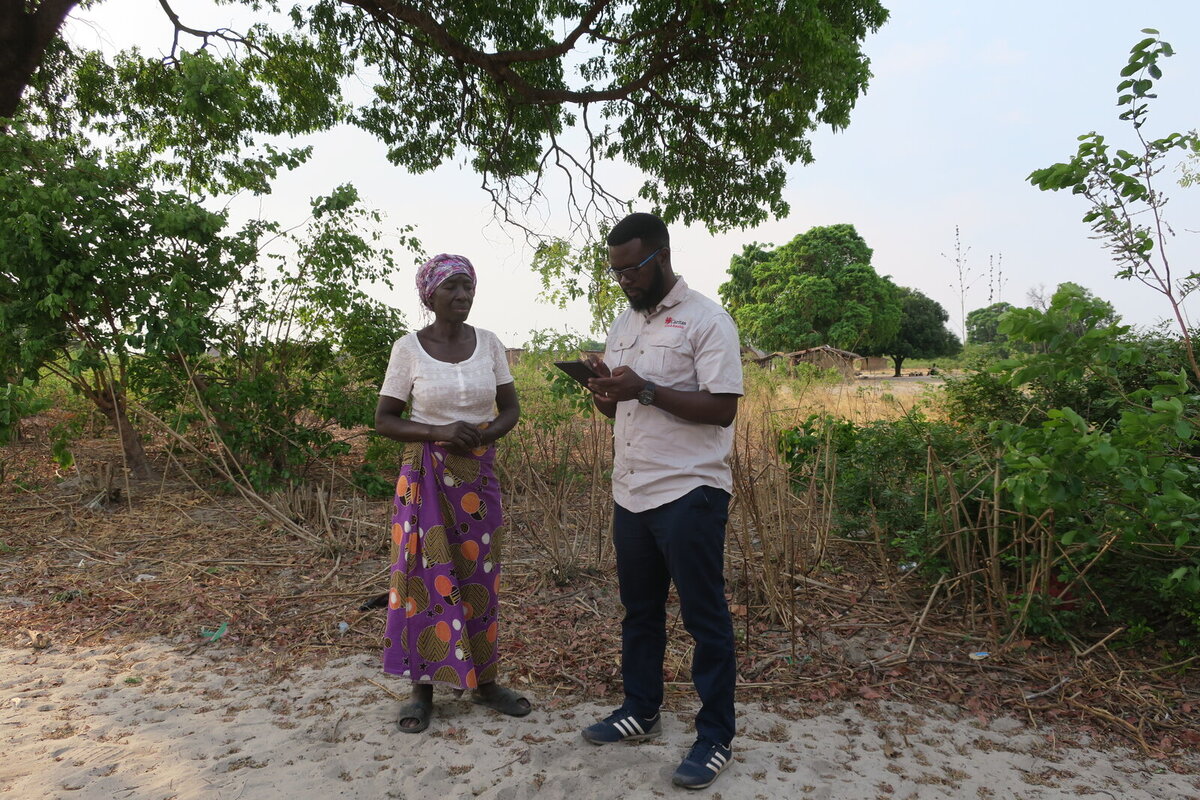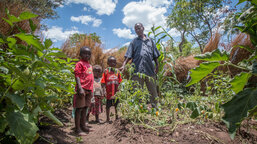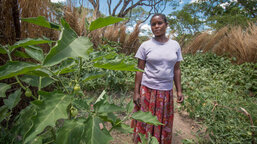Like any other country in the world suffering from the effects of climate change, Zambia is seeking solutions to combat it. In Zambia, the impacts of climate change are felt by everyone, but farmers are the most affected. Caritas Czech Republic is scaling up innovative technical solutions developed by the World Food Programme to help many farmers in Zambia withstand the impacts of climate change.
Strengthening the resilience of 40,000 smallholder farmers to climate change
Zambia's Western Province is among the provinces with the most extensive drought-induced crop failures, coupled with high levels of livestock diseases. This has made the region so impoverished, increasing its vulnerability to disasters and has gradually taken away the capacity of most farmers to withstand hazard risks to their livelihood security.
In April 2022, we started working on a project focused on disaster risk reduction and increasing farmers’ climate resilience through the adaptation and mitigation of risks in the Western Province of Zambia. With the support from the Czech Ministry of Foreign Affairs and in close cooperation with the World Food Programme Zambia as well as the Ministry of Agriculture Zambia, we are introducing innovative solutions for combating climate change in 6 districts of Western Province, which are, Sioma, Senanga, Sesheke, Kaoma, Mongu and Mulobezi. This is because, despite the province acting as the water reservoir for the country, it has semi-arid soils that make farming difficult.
The disaster risk reduction aims to strengthen the capacities of the country’s Ministry of Agriculture in the six target districts of Western Province through capacity building on climate information, weather index insurance and virtual markets.
Thanks to our initiative, 40,000 small-holder farmers will be trained through the Ministry of Agriculture to strengthen their capacity for climate resilience and also increase their access to climate information, weather index insurance and virtual markets.
Farmers learn about climate-resilient crops
To strengthen the smallholder farmers’ resilience to climate change, Caritas Czech Republic, together with its project partners, has trained smallholder farmers in farming systems and value chains through government camp extension officers who have been trained by the District Agriculture Officers.
Bupe Mukwemba, 62, of Kaoma district is one of the farmers supported by Caritas Czech Republic. “I never had any knowledge of climate change, nor did I know what crops to grow when there is drought. I thank Caritas Czech Republic for teaching us that sorghum, millet, rice and cowpea can withstand climate change shocks,” Bupe Mukwemba says and adds that these crops also have great nutritional values.
Use of Advanced Technological Innovative Solutions
Most smallholder farmers live in rural parts of Western Province. So, before the introduction of the initiative focusing on technological innovative solutions, many of them had no idea that it is possible to use phones to sell their products or to insure their crops and livestock.
In close cooperation with the Ministry of Agriculture and the World Food Programme, we have since encouraged and taught the smallholder farmers how to use Maano App, an app developed by the World Food Programme that can be accessed for less than 1USD annual subscription fee on any smartphone and feature phone.
Maano, which means intelligence in Zambia's local Tonga language, connects farmers and buyers and helps smallholder farmers access markets and sell their produce at more equitable prices.
Apart from the use of the Maano App, we encouraged the farmers to take advantage of the insurance services available to them, such as Agricultural Insurance which promotes the uptake of satellite-based weather Index Insurance. The insurance is not only affordable and easily paid out through mobile money, but it also offers unique index windows for each district, designed to capture each area’s distinct climate and cropping patterns.
Weather index insurance protects farmers against losses associated with below-average rainfall or droughts. If a drought occurs and falls under the insurance contract agreed terms, the farmer will receive money to help compensate for some of the losses.
The private partners that the Ministry of Agriculture and the World Food Programme are working with to provide agriculture insurance to farmers are Mayfair Insurance Company, ZISC General Insurance, Madison General Insurance and Professional Insurance.
The fight against climate change is for us all
Caritas Czech Republic in Zambia considers environmental protection and climate change as cross-cutting issues in all its activities. Over the past few years, we have carried out several projects that benefit both the environment and the people we support.
As an organisation, we also promote conservation farming methods to the farmers that we support. So far, we have trained about 7000 farmers in Western and Central Province on the importance and advantages of conservation farming.
We have also encouraged the use of energy-saving cooking methods such as the use of green charcoal. Two women in Mayukwayukwa refugee settlement have taken the lead in the fight for a climate-just environment by producing green charcoal within the settlement.
Other ways in which we are protecting the environment include promoting tree planting and the formation of seedling multiplication centres in refugee settlements. So far, we have trained over 100 people of concern in Mayukwayukwa and Mantapala refugee settlements in climate resilience and supported them with seedlings.

